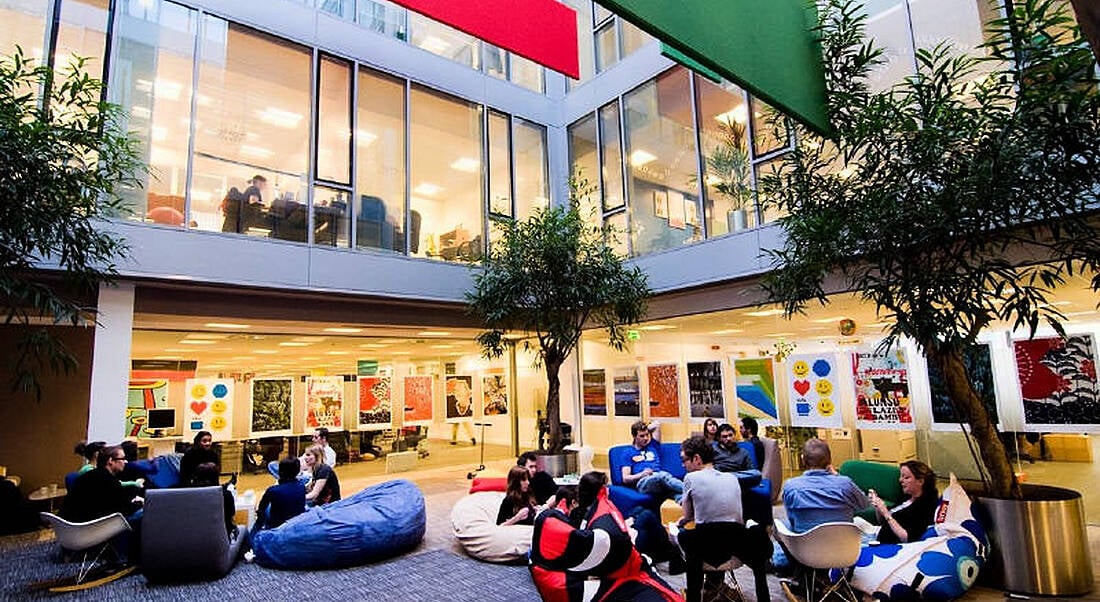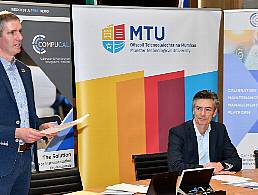It is a tale of two countries. One is steeped in recession where bright young graduates believe emigration is their only option. The other has a technology industry that is the envy of the modern world and where skilled graduates are in short supply. Will the two become one?
Ireland is a relatively young country with a compact population, yet has attracted more foreign direct investment (FDI) than Brazil, Russia, India and China combined. Tech giants like Intel, Google, Facebook, IBM, Microsoft, Apple and HP have located substantial operations here.
Over the course of recent months, Google announced 200 jobs here (and 1,000 across Europe), Intel has announced 1,000 new jobs here and over the course of the past year HP, which already employs 4,000 people in Ireland, announced close to 1,000 new jobs between Dublin, Kildare and Galway. Facebook, for example, has grown to 200 people in Dublin and plans to hire another 100.
The technology industry is accelerating ahead, fuelled by the universal growth of broadband, new innovations like the iPad from Apple, the rise of social networking services like Facebook, clamouring demand for smartphone devices and, of course, apps.
We have truly only scratched the surface of where technology is going and for the foreseeable future graduates of technology courses with the right skills and experience can plot a career that would provide them with gainful employment and a ticket to the world.
Opportunity
An economic impact study prepared for Microsoft by Goodbody Economic Consultants has revealed that Ireland has many of the attributes to become a global cloud computing centre of excellence and could capture a disproportionately large share of the cloud computing industry estimated to be worth €40bn worldwide by 2014.
Ireland alone has a chance to build a €9.5bn a year in revenue industry by 2014, resulting in 8,600 new jobs.
Not only that but because cloud computing lowers costs to businesses, by migrating the to the cloud some 2,000 new non-IT small and medium-sized firms can be created, which would in turn employ 11,000 people.
If Ireland is to reap the benefits of the stellar growth of this sector a number of things need to happen:
· There needs to be greater awareness at a political level of infrastructure deficits in the areas like science, broadband and computers in schools.
· Irish kids need to perform better at maths.
· We need more kids who can write software code and who will be the talented developers of tomorrow.

Education
There is a clear link between maths and science performance in Irish schools and the fact that computer courses still haven’t recovered the numbers they need at a time when technology jobs grew in Ireland by 6pc this past year.
Computer science college courses experienced the highest drop-out rate, with 27pc of these students leaving within their first year, a recent HEA study found. Engineering was third in terms of drop-out rates, with 20pc of students leaving before second year. Science tied with the arts/humanities/business sector, with a 14pc drop-out rate.
PISA (Programme for International Student Assessment), the OECD (Organisation for Economic Co-operation and Development) group responsible for measuring maths and literacy performance by students worldwide, found Ireland significantly below the OECD average for maths, causing alarm among industry groups.
Comparing countries’ and economies’ performances, Ireland achieved a PISA score of 487, below the OECD average of 496, and comparing poorly with economies like China-Shanghai (600), Korea (546) and Finland (541). PISA blamed insufficient ICT resources in Irish schools for the poor performance, proof if anything that the State must be stepping up its investment in ICT in schools, not reducing it.
Knowledge economy
As well as multinationals, Ireland needs its own rich trove of successful entrepreneurs and start-ups that, in their own right, will generate new jobs. One example of an Irish technology company taking the world by storm is Dublin-based Intuition, which provides e-learning to businesses around the world. The company has developed a cloud-based offering for its e-learning services that is accessed by more than 1m people worldwide.
Daragh Scaife, Intuition’s head of technology, said Ireland needs to do more to ensure we have more technology graduates. “I think Ireland has talked a lot about positioning itself as a knowledge economy, but we’re not seeing the number of graduates we really need to see emerge from colleges.
“As the country moves into a leading position, we need not only graduates but we need to have them doing research and further careers and building intellectual property. There’s a worldwide shortage of mobile developers and companies are doing as much as they can to fill those gaps.
“What Irish policymakers and business leaders need to realise is that technology is still driven by the English language. We’re in a unique position of having a national badge of being a technology country and we have the English language. We should be capitalising on that but unfortunately we’re not doing enough.”
In the Irish market, many of the companies recruiting skilled engineers and programmers tend to be hiring a cosmopolitan mix of some Irish and international workers, according to Scaife.
“The technology industry needs experienced and talented workers and they don’t have to all be computer engineers. As well as programming, there are opportunities for testing, programme analysis, people who can write good technical documents, product managers and ultimately people who can work in a team environment,” he said.
A US$1.6trn business
In December, financial services giant Citi announced 250 new jobs in Dublin and Waterford. In Dublin Citi has an R&D centre that has created 180 jobs and plans to grow further in 2011.
Citi’s Dave Fleming spelled out the opportunities for ICT careers. “Globally, technology and particularly software is growing at a faster pace year-on-year as technology embeds itself deeper and deeper into the global economy and into our daily lives.
“There is hardly an industry that is untouched by innovations enabled by technology. For example, the music industry has changed forever, the movie business is rapidly moving online, communication has gone digital, and finance has been revolutionised.
“The opportunities are endless within technology, each country requires more talent than any single market can supply. The global technology industry is currently a US$1.6trn business and there is no sign of it shrinking. On the contrary, growth will continue – 5.7pc in 2011 over 2010 – and most likely will increase in its velocity as the global economy slowly picks up over time.
“All skills such as development management, program management, project management, analysis and QA are in demand, however, the most acute demands are for talented developers (Java, .NET, web, mobile etc) who know how to develop commercial grade software with quality and fast! The conversion of the industry from traditional methods towards agile methods has accelerated the rate of delivery and productivity for those companies and teams which embrace the new methods,” Fleming said.
Vast opportunities exist in the growing area of ubiquitous computing, he added, which he believes encompasses cloud computing, mobile/untethered computing, social computing and the web in general, amongst others.
“Ubiquitous computing is about embedding computing into our daily lives, it is social, cross platform, cross device, cross OS by default. Today, email is ubiquitous and social graph-based apps are also ubiquitous. What’s next? We at Citi think finance, payments, transactions!”
So there it is. As a country we talk about recession, emigration and politics. But we need to be turning our thoughts towards creating more productive industries where graduates can have reasonable expectations of a rewarding and challenging but innovative career.




